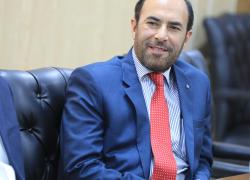The 05 key HR challenges and futuristic vision of the Universities in Pakistan
The public sector universities in Pakistan are confronting numerous challenges. Some of these are analysed in the blog post, “The 07 major challenges confronted by the Higher Education Institutes”. However, the most pressing among these encompass but not limited to the centralization of authority, excessive bureaucracy, financial indiscipline and relentless struggle for powers and authority, etc.
Repercussions of mismanagement in the universities
These issues harbinger serious implications for the overall governance of the universities. Employees unrest, unionization and strikes are few of the immediate offshoots. The drive to curtail universities’ autonomy, excessive meddling with the Act and resultant overwhelming role of bureaucracy in the academic administration shall intensify an already difficult situation. These issues need to be resolved as a top priority, otherwise, the affairs will become unmanageable over time.
Harsh realities of universities’ governance
The recent episode involving schism between the acting Vice-Chancellor and the incumbent Registrar of the University of Engineering & Technology Peshawar, a public sector university in Khyber Pakhtunkhwa, took a new turn, the other day, when the Register filed a petition in the Peshawar Higher Court against the decision of the Committee constituted by the Syndicate taking away all HR related roles and administrative functions from the Registrar and handing it over to the Additional Registrar of the university.
To make the matter even worse, on the day of the hearing, when the Registrar was in the court of law, he was served a show-cause by the university management. The new development was brought into the knowledge of the court, then and there. Though the council of the university assured that disciplinary proceedings shall be stopped against the Registrar, such incidents not only disturb the peaceful academic environment of the campus but also earn a bad name to the larger academic community.
A similar incident involving internal rift was reported, sometime back, when Registrar of the University of Peshawar was transferred by the Acting Vice-Chancellor and the former challenged the decision in Peshawar High Court pleading that under Section 11(2) of the Khyber Pakhtunkhwa Universities’ Act, the Vice-Chancellor didn’t have any administrative control over the university’s officers, including Registrar (presumably a lacuna in the Act). The petitioner substantiated that under the relevant law, the acting Vice-Chancellor could neither send the Registrar on forced leave nor issue charge sheet against him/her for being a Grade-20 officer.
The underlying reasons for HR challenges in the universities
Such issues surface as a result of the: 1) prevailing administrative vacuum germinated in the universities, over time, 2) negligence of the authorities to appoint regular Vice-Chancellors in time, 3) universities inability to have the right man, with the right skills, for the right job at the right time, 4) centralization of authority and concertation of powers in few hands, 4) personal vendetta and most importantly, 5) legions gaps and numerous lacunas in the Universities’ Act.
Read More: The six key HR trends and challenges in the universities in Pakistan
How to address HR issues?
Frankly, such happenings are relatively novel in the academic setting which are inherently human resource management issues get soar overtime. These incidents can be averted judiciously by putting in place a strong internal conflict resolution mechanism, pursuing effective human resource management strategies and eliminating ambiguities, deficiencies and anomalies from the Act.
The HR function in the universities in Pakistan
In the universities in technologically advanced countries, the Registrar being the principal adviser on strategic policy to the Vice-Chancellor and to the university executive councils, used to mainly responsible, for leading the overall management of the University’s affairs. However, the core HR functions are managed by an independent HR office headed by Director Human Resource. This office is manned by relevant staff having related qualification and experience. This has been discussed at length in the article: The 02 important ways in which HR can be completely revamped in the universities. Some of the top-ranking universities in Pakistan such as NUST, COMSATS, IBA and LUMS have, thus, established a full-fledged HR Office headed by Director-HR. However, other public sector universities are yet to follow suit.
Read More: The top 10 reasons why HR issues in the universities are getting complex
Proposed amendments in the Universities’ Act
As amendments in the Khyber Pakhtunkhwa Universities’ Act are on the anvil, the following changes are proposed:
- The Act should categorically mention that the Acting Vice-Chancellor shall have all the powers and functions as that of a regular Vice-Chancellor otherwise no one shall honour his/her authority.
- The Act should provide that the Vice-Chancellor both acting and regular shall have administrative control over the university’s officers including the Registrar or otherwise proviso should be made specifying the authority to that effect.
- Decentralization of authorities and strengthening of the academic units as independent cost centers should be made the cornerstone of the proposed amendments.
- The Act should provide for a full-fledged HR department headed by Director-HR and supported by a team of HR professionals.
- Complete digitization/automation of its various functions including HR should be made mandatory for the universities in line with best practices prevailing in the developed countries.
Conclusion
Developing HR capacity and building an independent HR administrative unit in HEIs is a futuristic vision towards universities governance. I hope these reforms shall help transform the landscape of HR function in the universities in Pakistan.


















